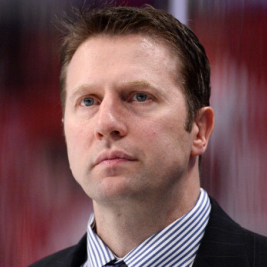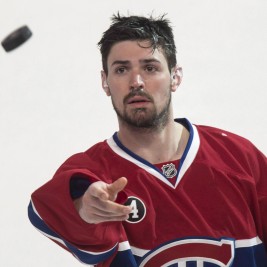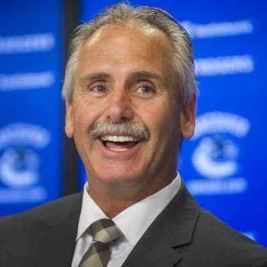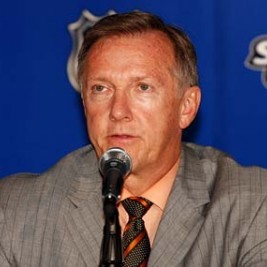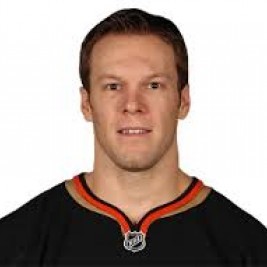
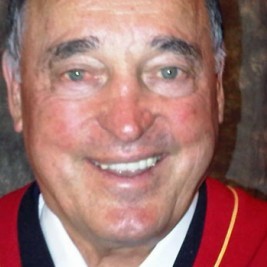
Corporate Appearances, Speaking Engagements, Autograph Signings, Endorsements, VIP Meet & Greets, Store Grand Openings
Book Frank Mahovlich for a Speaking Engagement
Businesses, Non-profit organizations, event planners and companies across the country have worked closely with our booking agents to hire Frank Mahovlich for a speaking engagements, guest appearances, product endorsements and corporate events. Many of those same clients have continued to turn to our speakers bureau as we can easily align Frank Mahovlich’s availability with their upcoming seminar, gala, annual conference, corporate function, and grand opening. Our close relationship with Frank Mahovlich’s booking agent and management team further enables us to provide inquiring clients with Frank Mahovlich’s speaking fee and appearance cost.
If your goal is to hire Frank Mahovlich to be your next keynote speaker or to be the next brand ambassador our celebrity speakers bureau can assist. If Frank Mahovlich’s booking fee is outside your companies budget or your unable to align with his appearance availability, our booking agents can provide you a list of talent that aligns with your event theme, budget and event date.
Frank Mahovlich went on to have a marvelous career, patrolling the left wing for 22 professional seasons in both the NHL and WHA. Many of those years were filled with glory as he earned individual awards and the Stanley Cup, but Mahovlich struggled through most of his hockey life with the stress that comes from great expectations.
Born in Schumacher, a small town in northern Ontario, he was a prodigy with the St. Michael's team that represented Toronto in the Ontario Hockey Association. When he was 17, he scored 24 goals and scouts and fans alike began to fill the arenas where he played to get a look at the big kid everybody was talking about. The next season he fired 52 goals in 49 games, won the Red Tilson Trophy as the league's most valuable player and made his first three appearances with the Leafs. Those who saw him play in junior talked about his potential to dominate, even at the professional level.
In his first full season in the NHL, 1957-58, he was solid and at times spectacular and his 20 goals and 36 points were enough to earn him the Calder Trophy as top rookie. He beat out Bobby Hull, who also entered the league that year as a much talked about youngster. At 19, Mahovlich seemed on the cusp of not just a great but a record-shattering career.
His next two seasons were erratic on the ice but consistent on the score sheet. He hovered around 20 goals, good totals for a young player, but many Toronto fans wanted a superstar performance each night, on every shift, and 20 goals wasn't good enough. In 1960-61, he began to play the way everyone had always expected. Still only 23 years old, he had an exceptional start to the season and led the league for much of the year in goals. With 14 games remaining, he had 48 goals, two less than Maurice Richard's record of 50. He seemed destined to seize the position of the game's top scorer. Those final two goals never came, however. Bernie Geoffrion overtook him late in the year, tying the Rocket's record in the process. People began talking not about how much talent Mahovlich had, how he'd scored 48 goals at such a young age, but what was missing in him that prevented him from achieving more.
Although the Leafs won the Stanley Cup for three consecutive seasons beginning in 1962, and even though Mahovlich averaged over 30 goals a year, he was the focus of much criticism and constant boos when he played in front of the home crowd. When he failed to score a goal in the 1963 playoffs, he was booed during and after the game in which the Leafs clinched the title. Even the next day the heckling continued at a reception in downtown Toronto for the Cup winners.
Mahovlich responded to Imlach's berating by not reacting to it. He admitted later that the two men didn't speak for five years. Though the team and the doctors didn't admit it for several years, Mahovlich was hospitalized in 1964, suffering from acute tension and depression. He returned to the team but struggled on the ice, his goal production dropping to 18 in 1966-67, the year of his final Cup victory with Toronto.
The Leafs played the Montreal Canadiens on November 1, 1967 - an important game between long-time foes. Mahovlich played a wonderful game, scoring a goal and adding two assists in Toronto's 5-0 win. He was named one of the three stars of the game and took his bow in front of the remaining fans as was the custom at the end of the evening. Many in the crowd cheered the big winger, but there were also boos, even on that night. The next day, with the Leafs leaving on a trip to Detroit, Mahovlich got up from his seat on the train, told a teammate he was going home and left. He was soon under the care of the Toronto General Hospital psychiatric staff. He was in a deep depression and, according to many reports, had suffered a nervous breakdown.
Mahovlich stayed away from the rink to deal with his nervous condition. After more than a month, during which he missed 11 games, he made his return at home in a game against the Canadiens. While he was away, young Mike Walton had taken up the slack in scoring for the Leafs, winning several consecutive games with late goals. When Mahovlich stepped on the ice, he was on a line with Walton and the Leafs captain, George Armstrong. Mahovlich gathered the puck at center and sailed down the right wing into the Montreal zone, pulling a defenseman wide with him to open up the middle. With one perfectly placed pass, Mahovlich found Walton, who fired it into the net. In all it took 18 seconds for the Big M to announce his return, and now the fans were united in their applause.
Near the end of the season, the Leafs decided to part ways with their big winger. In the biggest trade of the year, he was sent to the Detroit Red Wings with Pete Stemkowski, Garry Unger and the rights to another Leaf enigma, Carl Brewer, for Paul Henderson, Norm Ullman and Floyd Smith. Freed in Detroit from all the pressure and conflict in Toronto, Mahovlich experienced a rebirth. He also joined his younger brother Pete, known as "the Little M" even though he had five inches on Frank. The elder Mahovlich became more outgoing, joking with teammates and fans. He was put on a line with Gordie Howe and Alex Delvecchio and had his best goal-scoring year in his first full season with the team, 49 goals in 1968-69.
In Detroit, Mahovlich played more minutes than ever on the first line on the powerplay and sometimes even killed penalties. When Howe became the third player to break the 100-point plateau in 1968-69, Mahovlich was cited as a significant factor.
After several successful and happy years in Detroit, Mahovlich was on the move again, the victim of a Detroit team that was struggling and dumping high-priced players to rebuild. The Montreal Canadiens were preparing for a run to the Cup and acquired the big left winger for three players in January 1971. Once again, Mahovlich was teamed with his brother Pete, who had joined the Canadiens the year before. Mahovlich had a spectacular playoffs with a Montreal team that won the Stanley Cup that year due in large part to his league-leading 14 goals and 27 post-season points. Mahovlich was truly happy in Montreal. He had his best overall season in 1971-72, collecting 96 points, and earned a place on the Canadian team that battled the Russians in the 1972 Summit Series.
In 1973 Mahovlich was selected to the NHL's First All-Star Team, one of only three times he achieved that honour. And once again he was outstanding in the playoffs, capturing his sixth and final Stanley Cup. Mahovlich and Montreal were a natural fit and only his aging legs and a move toward younger athletes in the Canadiens organization prevented him from continuing to put up big numbers late into his career.
Instead of finishing his career in Montreal, Mahovlich signed a lucrative contract with the World Hockey Association. The Houston team selected him in the 1972 Entry Draft and then traded him to the Toronto Toros, who attempted to sign both Mahovlich brothers. They were thrilled when Frank, at age 36, signed a four-year deal. He was one of the league's top scorers and headlined the team in its attempt to compete with the Leafs. The Toros team moved after two seasons to Birmingham, deep in the southern U.S., and became the Bulls. Though Mahovlich still had a great desire to play, the Bulls didn't capture the imagination of the fans. At the end of his four-year contract, having just turned 40, Mahovlich parted ways with Birmingham, which was replacing its expensive veterans with unproven juniors in an attempt to stay afloat.
Frank Mahovlich was elected to the Hockey Hall of Fame in 1981, and in 1998, in recognition of his years of class on the ice and off, he was appointed to the Canadian Senate by Prime Minister Jean Chretien.

Let our team of booking agents help create a memorable experience with hiring Frank Mahovlich for your store grand opening, golf outing, trade show booth or corporate outing.
NOPACTalent acts as a Celebrity Speakers Bureau and Athlete Booking agency for corporate functions, appearances, private events and speaking engagements. NOPACTalent does not claim or represent itself as Frank Mahovlich’s speakers bureau, agent, manager or management company for Frank Mahovlich or any celebrity on this website. NOPACTalent represents organizations seeking to hire motivational speakers, athletes, celebrities and entertainers for private corporate events, celebrity endorsements, personal appearances, and speaking engagements.



